Portugal, with its rich history, stunning landscapes, and vibrant culture, is a destination that offers something for every type of traveler. From its bustling cities to its serene countryside and breathtaking coastline, there are some of the best places to visit in Portugal.
Lisbon
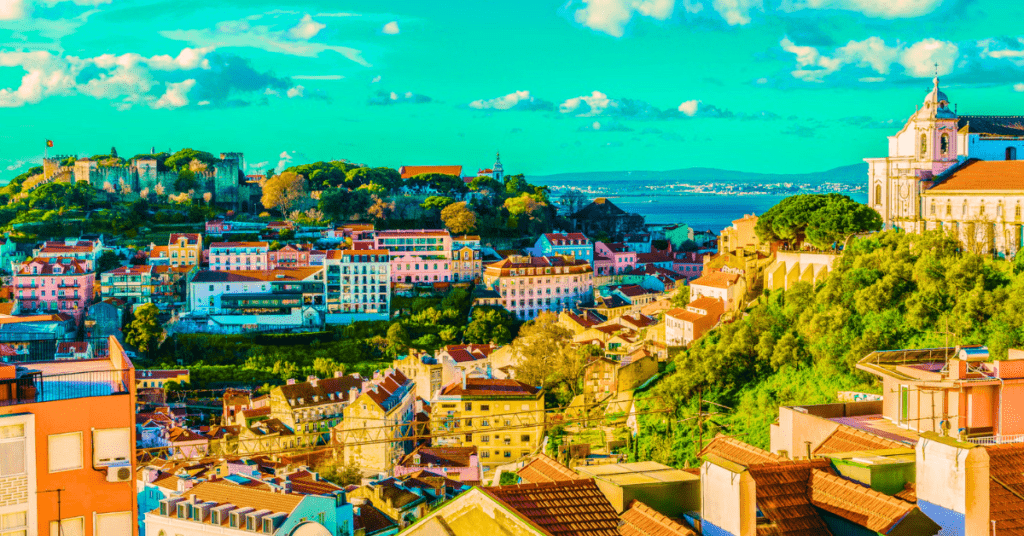
The capital city, Lisbon, is a must-visit for anyone traveling to Portugal. Known for its hilly terrain, colorful buildings, and iconic yellow trams, Lisbon offers a unique blend of traditional and modern experiences.
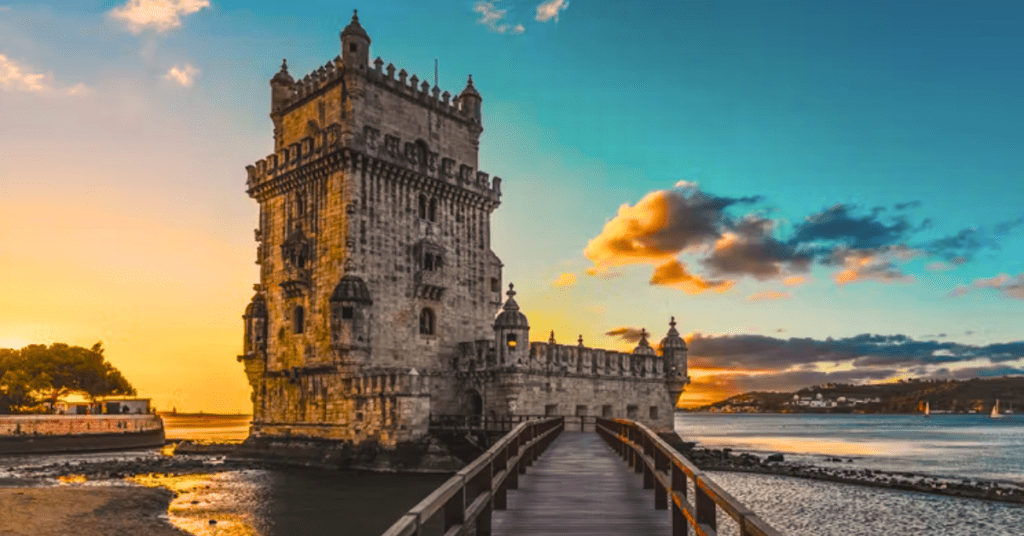
Explore the historic Alfama district, with its narrow streets and beautiful viewpoints like Miradouro de Santa Catarina. Don’t miss the Belém Tower and the Jerónimos Monastery, both UNESCO World Heritage sites.
Porto

Porto, Portugal’s second-largest city, is famous for its wine, historic architecture, and scenic riverfront. The Ribeira district, a UNESCO World Heritage site, is a picturesque area filled with colorful buildings, narrow alleys, and riverside cafes.

The Dom Luís I Bridge offers stunning views of the Douro River and the city. Don’t forget to visit the historic Livraria Lello, one of the most beautiful bookstores in the world, and take a tour of the local wine cellars to sample the city’s famous Port wine.
Sintra
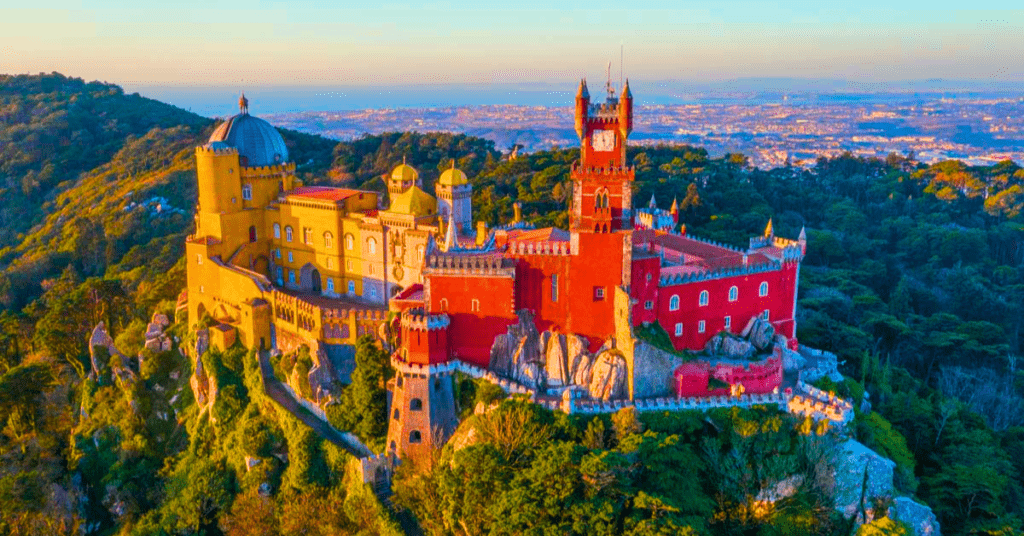
A short drive from Lisbon, the town of Sintra is like stepping into a fairy tale. Known for its romantic palaces, lush gardens, and mystical forests, Sintra is a UNESCO World Heritage site that captivates visitors.
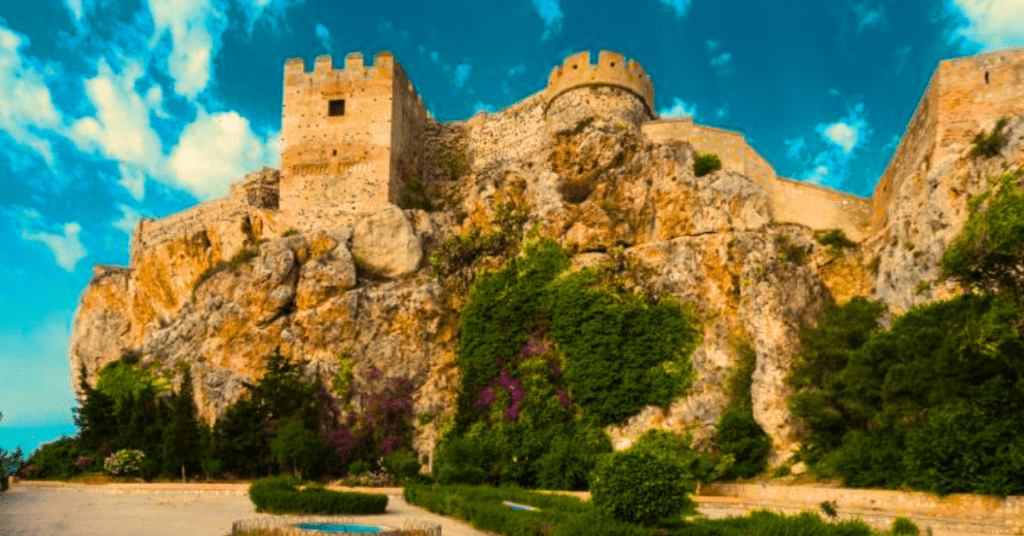
The Pena Palace, with its vibrant colors and eclectic architecture, is one of the most iconic landmarks in Portugal. Explore the mysterious Quinta da Regaleira, with its labyrinthine gardens and hidden tunnels, or visit the Moorish Castle for breathtaking views of the surrounding landscape.
Algarve
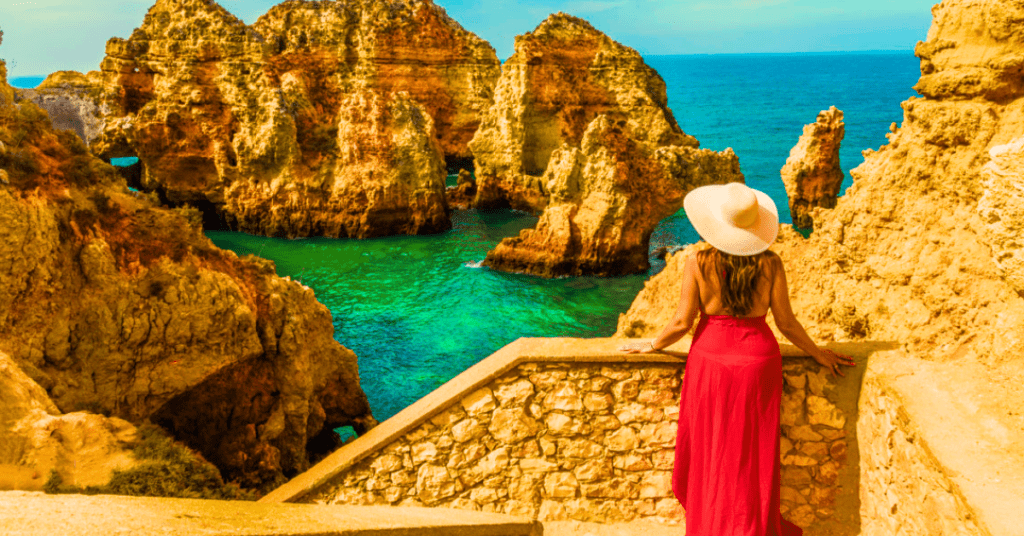
The Algarve region, located in southern Portugal, is famous for its stunning beaches, dramatic cliffs, and charming towns. The coastline is dotted with beautiful spots like Praia da Marinha, known for its crystal-clear waters and golden cliffs, and Ponta da Piedade, with its unique rock formations and hidden grottos.
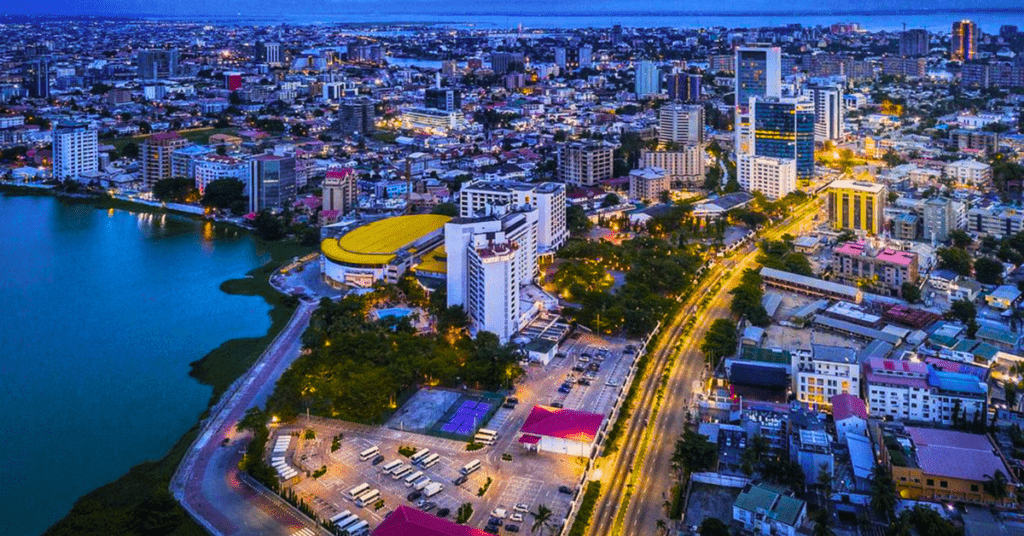
The towns of Lagos and Albufeira offer a mix of historic charm and modern amenities, making them perfect bases for exploring the region. The Algarve is also a paradise for outdoor enthusiasts, offering activities like hiking, surfing, and boat tours.
Madeira
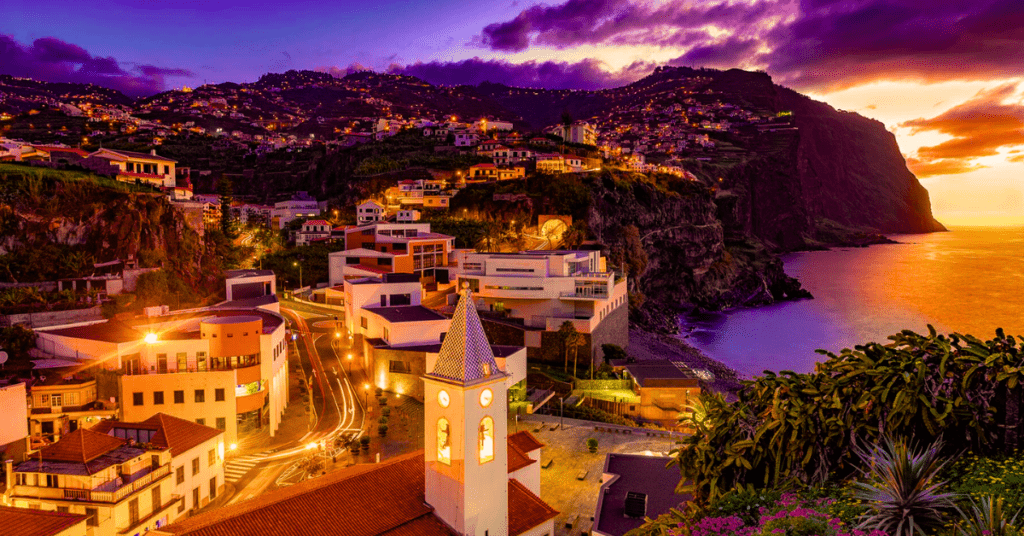
Madeira is a lush, mountainous island located in the Atlantic Ocean, known for its stunning landscapes, subtropical climate, and rich botanical gardens. The island’s capital, Funchal, is a charming city with a historic old town, beautiful parks, and a lively marina.
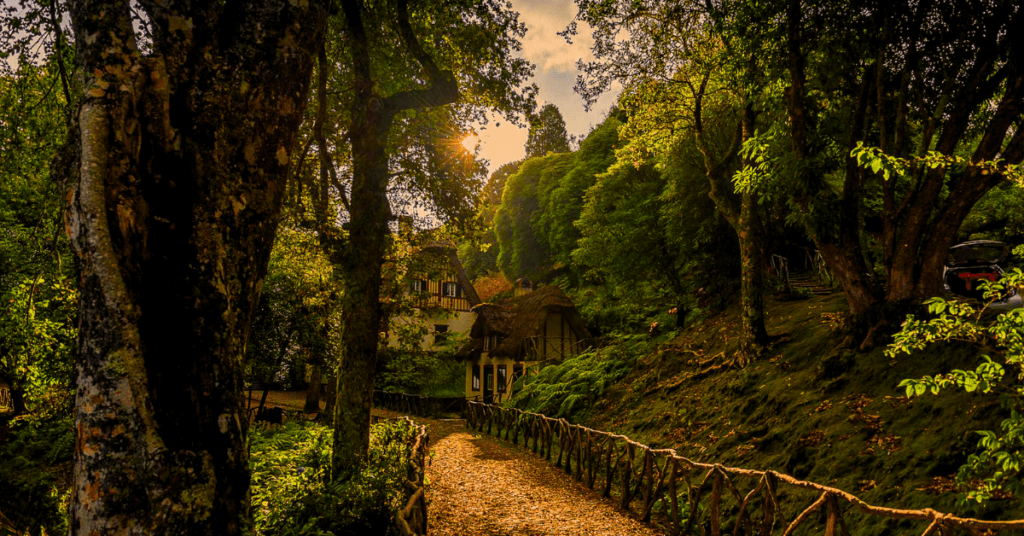
Explore the Laurisilva Forest, a UNESCO World Heritage site, or take a scenic drive along the island’s rugged coastline. For a truly unique experience, try hiking along the levadas, ancient irrigation channels that offer some of the best views of Madeira’s mountains and valleys.
Évora
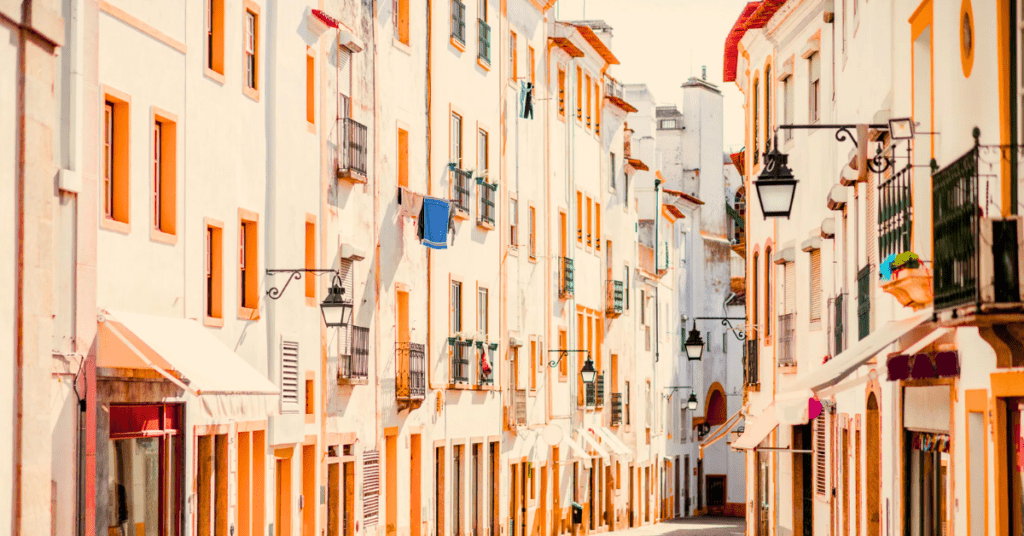
Located in the Alentejo region, the historic city of Évora is a treasure trove of ancient history and well-preserved architecture. The city’s Roman Temple, Cathedral of Évora, and Chapel of Bones are must-see attractions.
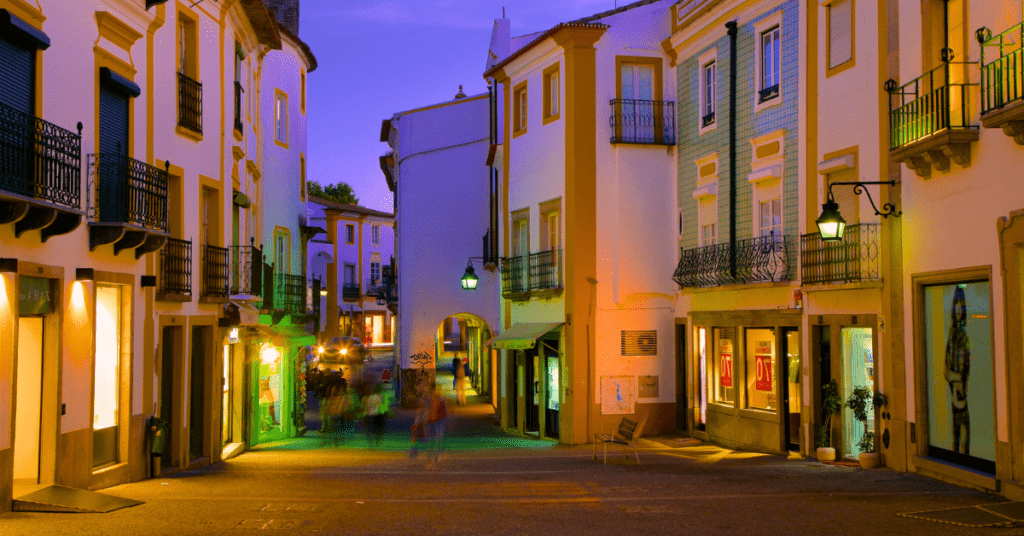
Évora’s medieval streets are lined with whitewashed houses, and its many squares are perfect for enjoying a leisurely meal or a coffee. The surrounding countryside is known for its vineyards and olive groves, making Évora an excellent destination for wine lovers.
Conclusion
Portugal is a country that truly has it all—stunning landscapes, historic cities, rich culture, and welcoming people. Whether you’re drawn to the vibrant streets of Lisbon and Porto, the fairy-tale palaces of Sintra, or the sun-soaked beaches of the Algarve, there’s something for everyone in this beautiful country.
Each destination in Portugal offers a unique experience, making it a must-visit destination for travelers of all kinds.
Frequently Asked Questions
What is the best time to visit Portugal?
The best time to visit Portugal is during the spring (March to May) and fall (September to November) when the weather is mild, and there are fewer tourists. Summer is great for beach destinations, while winter is ideal for visiting cities like Lisbon and Porto.
What are the top cities to visit in Portugal?
The top cities to visit in Portugal include Lisbon, Porto, Sintra, and Coimbra. Each city offers a unique mix of history, culture, and stunning architecture.
What are the must-see natural attractions in Portugal?
Must-see natural attractions in Portugal include the Algarve coastline, the Douro Valley vineyards, the volcanic landscapes of the Azores, and the lush greenery of Madeira.
Is Portugal a good destination for beach lovers?
Yes, Portugal is an excellent destination for beach lovers, especially in the Algarve region, which is known for its stunning beaches like Praia da Marinha and Ponta da Piedade.
What cultural experiences should I not miss in Portugal?
Don’t miss experiencing fado music in Lisbon or Coimbra, exploring the historic palaces of Sintra, and visiting UNESCO World Heritage sites like the Jerónimos Monastery and Douro Valley.
How many days should I spend in Portugal?
To get a good sense of Portugal, it’s recommended to spend at least 7 to 10 days. This allows you to explore major cities like Lisbon and Porto, as well as visit a few other regions like the Algarve, Sintra, or the Douro Valley.
Is Portugal a family-friendly destination?
Yes, Portugal is very family-friendly, offering a range of activities suitable for all ages, including beach outings, historical tours, and nature excursions in places like Madeira and the Azores.
What is the best way to travel around Portugal?
The best way to travel around Portugal is by car, especially if you plan to explore rural areas and coastal regions. Trains and buses are also convenient for traveling between major cities like Lisbon, Porto, and Coimbra.
Are there any off-the-beaten-path destinations in Portugal?
Yes, consider visiting Évora for its historical charm, the Alentejo region for its vineyards and olive groves, or Terceira Island in the Azores for a more remote experience.
Do I need to know Portuguese to travel in Portugal?
While it’s helpful to know a few basic phrases in Portuguese, English is widely spoken in tourist areas, especially in major cities and popular tourist destinations.
